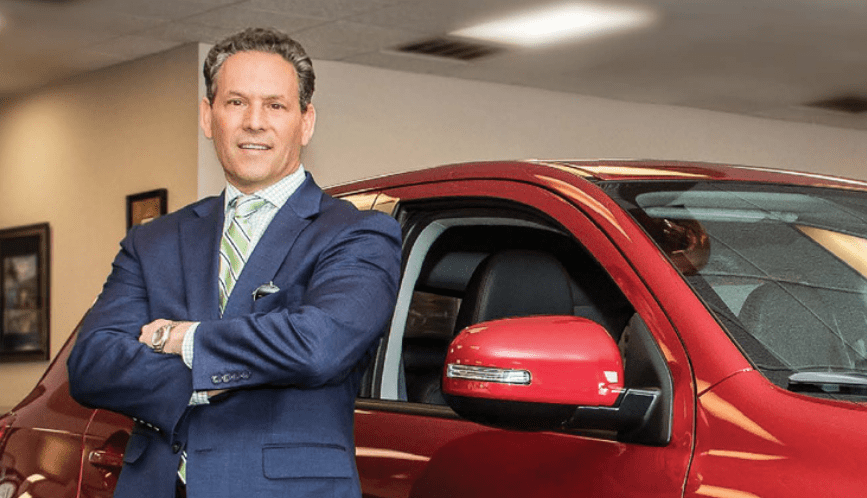Building a culture of accountability in any business is not easy, but it is critical for the success of teams, including those within dealerships. Without accountability, productivity is reduced, and the blame for any mishaps gets shifted, often unfairly. Improving accountability in your dealership can take time, but it can also improve your business operations and the work quality of your staff.
What accountability looks like in a dealership
Simply stated, accountability in a dealership involves employees at all levels and in all departments taking responsibility for their work and sticking to commitments they make. All employees in a dealership should be expected to provide outstanding customer service regardless of what customers are needing, and they should also track their time accurately and honestly.
Sales teams are accountable for meeting targets as well as carrying out important tasks such as following up with clients after visits or virtual conversations. Individuals working in the service lane are accountable for following strict safety procedures and maintaining complete/accurate records while taking responsibility for any errors they may make. Management should always take accountability for any work they complete, which may include expense tracking and budget creation.
Why defining responsibilities is important


A critical step to building a culture of accountability in a dealership is actually developing and outlining responsibilities for all employees. If these are created, employees are aware of exactly what expectations are placed on them and what their contributions to the business are supposed to be. Employees with defined responsibilities are more likely to hold themselves accountable, as they know whether or not they are meeting their goals.
Employees across all industries regularly report they do not have defined responsibilities and feel they are just being “thrown” into the work. This can lead to inefficiency and, sometimes, even overlapping of each other’s work, which can waste a lot of time. Making a plan for each employee can take away this confusion and help everyone understand clearly what their obligations are. It also helps management personnel, as they are able to quickly give tasks to the proper team members and distribute work fairly. In addition, having defined roles in a dealership can help employees determine their strengths and weaknesses, therefore encouraging their career development.
Management control vs. Management collaboration
Management styles within dealerships vary greatly, but two of the main approaches are management control and management collaboration.
Management control refers to the approach in which management makes decisions and employees follow any rules and procedures they implement. In this approach, management teams often use CRM platforms to gather metrics and develop goals and procedures that they think would be best for their dealerships. This approach can increase efficiency and reduce risks, but it may discourage employees from offering creative solutions to problems that could be great for a dealership.
Alternatively, management collaboration places an importance on teamwork and developing goals and procedures together. Instead of a top-down management approach, management works alongside employees and employee input/feedback is always welcome. This approach typically takes more time, but it can increase the amount of ownership employees place on their work and it can improve relationships within dealership teams.
The benefits of goal setting
Goal setting is a critical component of building a culture of accountability in a dealership. The process of goal setting leads to an overall vision of what a dealership wants to achieve and the steps it will take to reach its goals. One structured goal setting model that a lot of businesses benefit from is the SMART goal model, which includes Specific, Measurable, Achievable, Relevant, and Time-bound goals, but there are many different models that can be used. Of course, goals can always be tweaked at any time if needed.
 More like this: Are you planning your mission and reaching your goals?
More like this: Are you planning your mission and reaching your goals?
Regardless what method of goal setting is used, it gives everyone working in a dealership a clear vision with measurable objectives. Knowing exactly what the dealership is striving for can help employees stay focused and efficient instead of reducing productivity by wasting time. Since set metrics can be tracked, employees can be held accountable for their progress. Having a vision can motivate team members and also allows teams to celebrate achievements and milestones along the way.
Why employee recognition is crucial for accountability
The majority of employees want to be recognized for their successes at work. Recognized employees are more likely to be hard workers, as the recognition and positive feedback makes them feel confident and therefore more motivated. Recognizing employees can also reduce turnover, as they will feel more valued and appreciated. This, in turn, boosts morale in the dealership.
Employee recognition can also foster teamwork seeing as employees who are engaged and motivated have a higher tendency to collaborate effectively with their coworkers. Performance, in turn, is increased and recognized employees typically have more of a sense of accountability over their work.
Ultimately, every dealership’s culture of accountability will look a little different, but they should all have one. If clear expectations are laid out and management is transparent about what each employee’s role is, everyone working in a dealership may feel more obligated to take ownership over the jobs they do. Of course, employees need to be held accountable for their work, but dealership management should set an example by holding themselves accountable, too. Open lines of communication and encouraging employee input can also help develop the best culture of accountability possible.



